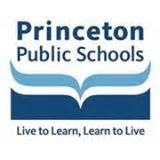By Philip Sean Curran
Staff Writer
The leaders of the Princeton Public Schools and the Princeton Charter School are looking to put their acrimonious past behind them, a move toward collaboration and not litigation.
That was one of the takeaways of the settlement they reached earlier this year to end a legal battle about the charter school expanding its enrollment by 76 students.
In that spirit of comity, representatives of both sides spent roughly an hour in Trenton on Nov. 26 with state Education Commissioner Lamont O. Repollet, who has a vision for school districts and the charter schools in their communities working more closely, officials said.
“They are interested in hearing how we are collaborating, as it’s clear they want to encourage it across the state, and are trying to figure out what they can do in his office to facilitate more collaboration,” Maryellen McQuade, president of the Princeton Charter School Board of Trustees, said on Nov. 27. “We were happy to show how we’ve come together as a community.”
Princeton Board of Education President Patrick Sullivan, who also attended the meeting, said on Nov. 27 that the session with Repollet covered a gamut of topics, from the state school funding formula to state regulations dealing with the expansion of charter schools.
Sullivan said Repollet encouraged both sides to find “smaller” ways to cooperate, such as cost-sharing of expenses like supplies and maintenance.
The enrollment expansion of the charter school was approved by the state during the Christie administration, but it led to costly legal fights. With that now behind them, the school district and the charter school are looking to a brighter future.
School district administrators invited representatives of the charter school, McQuade and Lawrence Patton, the Head of School, to attend the meeting with Repollet.
“It was a great opportunity to sit at the table together and talk to the commissioner,” Superintendent of Schools Stephen C. Cochrane said on Nov. 27. “Overall, I think the meeting was a very positive beginning to what needs to be an ongoing conversation.”
Repollet’s office said the meeting was part of the department’s “statewide charter outreach.”
“At this time, the New Jersey Department of Education is focused on gathering feedback from the field,” spokeswoman Carmen Cusido said on Nov. 28. “There are no predetermined outcomes or recommendations. Once we have completed the outreach, we will organize the feedback and summarize the feedback in a public report. We anticipate releasing the report in early 2019.”
The Princeton Charter School is funded mostly through local property taxes. The money is passed through the Princeton Public Schools, which counts charter school funding against its budget, which must stay within a 2 percent state mandated tax cap.
That can put the school district in a tough spot financially when it needs to raise taxes or when the charter school requires additional funding, as it did when it added 76 students through a two-year phase-in.
Any changes to the way schools get funded would have to be made by state lawmakers, as Cochrane said Repollet indicated that school funding is a “legislative issue.”
“I think we were able to make clear the difficulty we face as a district with rising enrollment, a 2 percent cap and with much of our tax levy increase going now to the recent enrollment expansion for the charter school,” he said.

